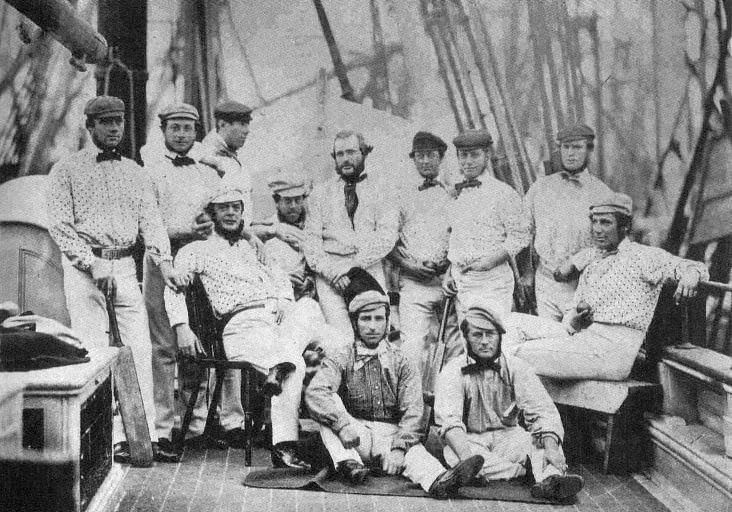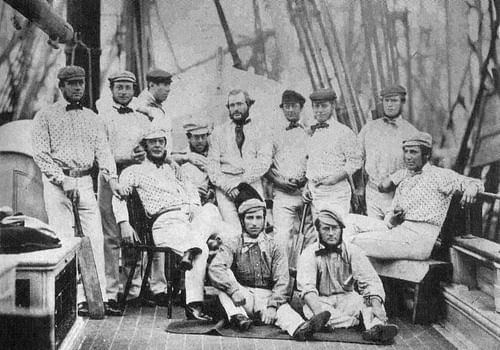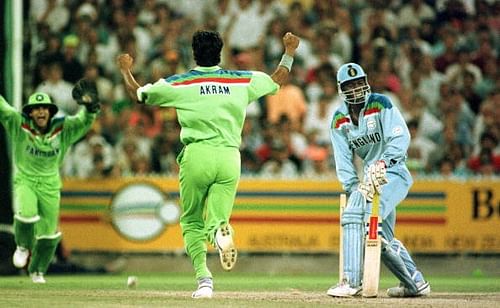
Why haven't England won a Cricket World Cup despite inventing the game?
The Game of Cricket has been in existence since the 16th century. It was born in southern England and ended up becoming the national sport of the country in the 18th century.
Owing the expansion of British empire, the game of Cricket made its way into all the countries which were ruled by them. The first international cricket match took place in 1844 when the United States played host to Canada while the first international test match was officially played on March 15th, 1877 between Australia and England at Melbourne.
Nearly a century later in 1975, The ‘International Cricket Council’, which is the governing body of the sport, organised its very first limited overs Cricket World Cup. Till date, a total of eleven Cricket World Cups have been organised and Team England has not won even single one so far.

It is quite ironical that a country which gave birth to the sport does not have a World Cup trophy to their credit. This fact has been a tough one to digest for the cricket aficionados.
The rules and format of limited-overs cricket have undergone many changes over the years and each international team is expected to adapt to these modifications. Team England were unable to adapt as well as their counterparts since after the fifth ICC World Cup in 1992 and have struggled to claim a spot in the semi-finals of any edition of the tournament till date.
This shows how low the England performance has stooped to at the biggest stage of the limited overs format of cricket.
1975 – 1993
The excuse for their inability to deliver at the most prestigious tournament of ICC cannot be that they had an inferior team as compared to the other international teams at that time. This can be authenticated by their ODI rankings from the period of January 1981 to March 1993, where they held the top position for an impressive 29 months.
This feat cannot be achieved sans a quality, well balanced and talented team of players. In fact, it can be observed that they managed a semi-final spot in every World Cup during this phase.
In addition, the first three World-Cups were hosted by England, which was a considerable advantage as they were familiar with the home conditions. Despite having so many factors tilt in their favour, the much desired ‘Cup’ remained out of their grasp.

In the first World Cup of 1975, Team England dominated in all the matches until they faced Australia in the semi-final, where their batting order collapsed and got bundled out for 93 runs.
England bettered its performance in the following tournament and earned a spot in the finals of the 1979 World Cup, where they faced one of the giants of cricket – West Indies. This time around, Vivian Richard’s 138* set up a chase of 287 in 60 overs for England, which was considered to be a very big chase back then.
England gave into the pressure of the required run-rate and were wrapped up for 194.
Then came the 1983 World Cup where Team India outplayed every opposition that was presented to them. England faced India in the semi-final where they could offer no resistance of any sorts as India cruised into the finals, eventually going on to win the tournament as well.
The first World Cup tournament to be played outside England was the fourth edition in 1987, where India and Pakistan were the hosts. Team England, led by wicketkeeper-batsman Mike Gatting, came out victorious this time against India in the semifinals to set up a clash against Australians in the final.
As England chased 254 to win, they were restricted to 246/8 by the Aussies. This is the closest the English players have ever come to winning the World Cup trophy, as they fell short by a mere 7 runs.
Then came the 1992 World Cup, where Imran Khan came out of retirement and guided his team to a maiden World Cup victory. England got a final spot in this edition as they had passed the South African challenge in the semifinal courtesy a flawed Duckworth-Lewis method that was imposed on the match due to rains.
In the finals, England were outright favourites to win their first trophy as prior in the tournament, they had bowled out the Pakistan’s batting order for an embarrassing score of 74. England had to chase 250 in 50 overs which was a gettable score, but a somewhat challenging one.
However, the pace attack of Pakistan swung the leather ball both ways and with the help of leggie Mushtaq Ahmed, England were bowled out for 229.
Not many had expected this outcome of the 1992 final. England missed out on another golden opportunity to grab the ever evasive World Cup.
